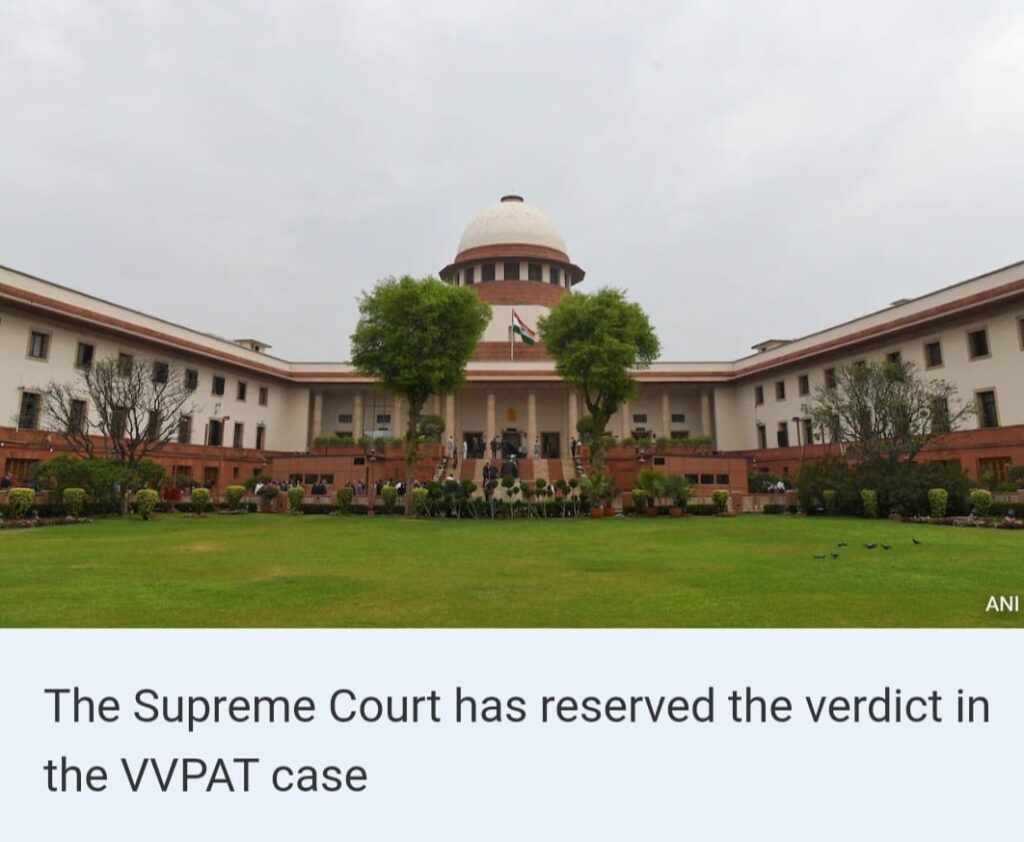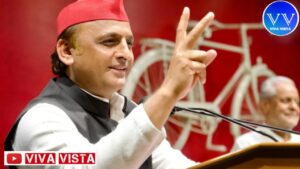EVM Controversy Explodes with Shocking Revelation:
Landmark Case Unravels Explosive Debate Over Electoral Integrity”
In a jaw-dropping turn of events, the Supreme Court delivered a bombshell statement today, shaking the very foundation of electoral processes in India. As the nation awaited a decisive ruling on the contentious issue of Electronic Voting Machines (EVMs) and their verification methods, the Supreme court dropped a seismic revelation: it refuses to wield authority over the Election Commission, the constitutional body responsible for overseeing elections.
The courtroom drama unfolded during a hearing on petitions demanding a comprehensive cross-verification of EVM votes with paper slips generated by the Voter Verified Paper Audit Trail (VVPAT) system. Advocates representing the petitioners passionately argued for increased transparency and accountability in the electoral process, citing concerns over potential tampering and the erosion of public trust.
However, the bench of Justice Sanjiv Khanna and Justice Dipankar Datta stunned observers with their pointed remarks, questioning the validity of acting on mere suspicion. As tensions mounted, Advocate Prashant Bhushan, representing the Association for Democratic Reforms, found himself at odds with the court’s stance, facing a stern rebuke for his entrenched beliefs.
In a statement that reverberated across the political landscape, the court declared, “If you are predisposed about a thought-process, then we cannot help you… we are not here to change your thought process.” This declaration served as a clarion call, highlighting the judiciary’s reluctance to intervene in matters perceived as the purview of constitutional authorities.
As the spotlight shifted to the Election Commission, proponents of electoral reform found themselves facing an uphill battle. Despite impassioned pleas for heightened scrutiny and comparisons to European ballot voting systems, the court swiftly dismissed such analogies, asserting that the challenges facing India are unique.
The Election Commission, steadfast in its defense of the current system, emphasized its perceived foolproof nature. Yet, as the proceedings unfolded, cracks began to emerge in the facade of certainty. Questions regarding the re-programmability of microcontrollers within the EVMs sparked a heated exchange, with Mr. Bhushan challenging the commission’s assertions.
In a tense moment, the court grappled with the complexities of technical jargon, seeking clarity on the functionality of microcontrollers and the potential for malicious interference. Despite Mr. Bhushan’s warnings of vulnerabilities within the system, the court reiterated its stance: it cannot issue mandates based on suspicion alone.
The revelation sent shockwaves throughout the nation, igniting a firestorm of debate over the integrity of India’s electoral process. With the specter of uncertainty looming large, citizens grappled with existential questions about the very foundation of democracy.
As the dust settles on this landmark case, one thing remains abundantly clear: the battle for electoral integrity rages on, with the Supreme Court’s decision serving as a catalyst for change. In a democracy founded on principles of transparency and accountability, the quest for a fair and impartial electoral system is far from over.













3 thoughts on “Supreme Court Stuns Nation: EVM Controversy Explodes with Shocking Revelation”